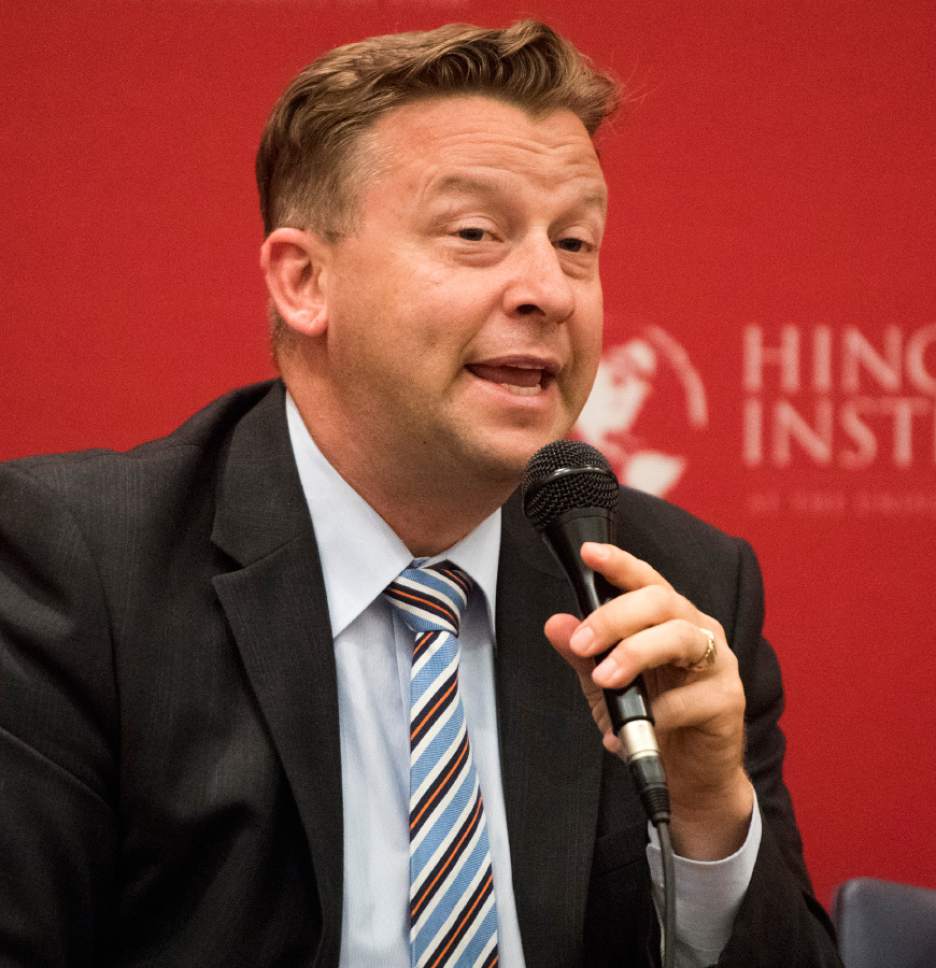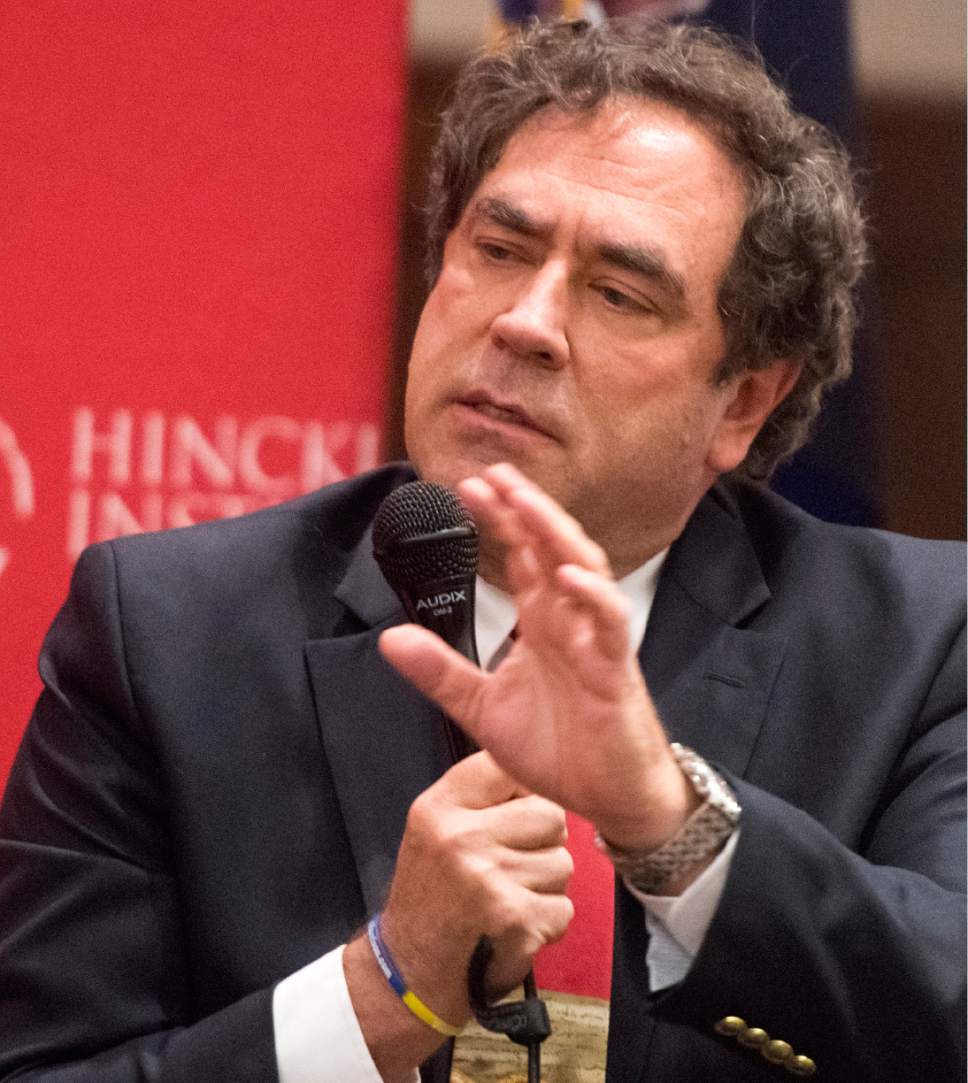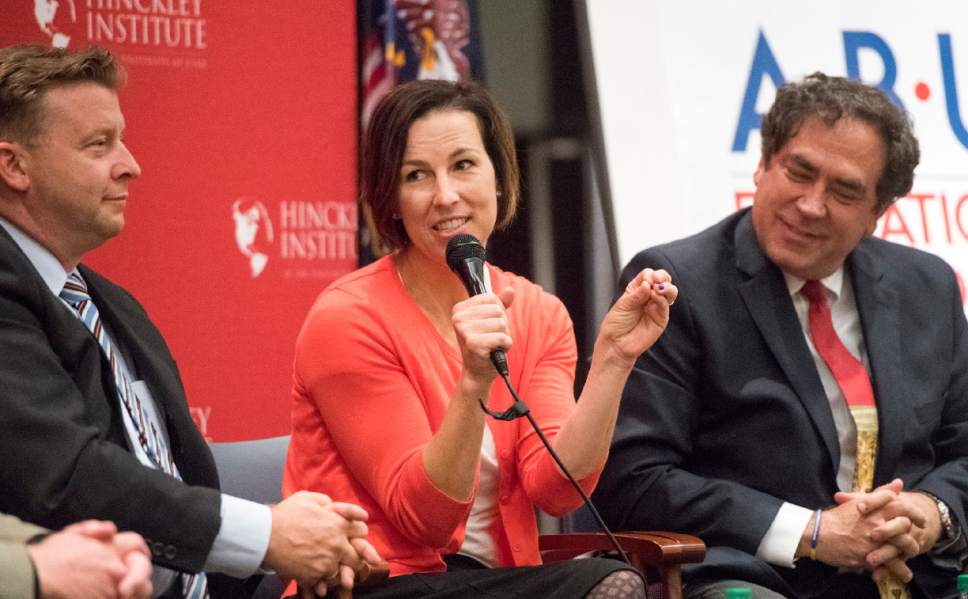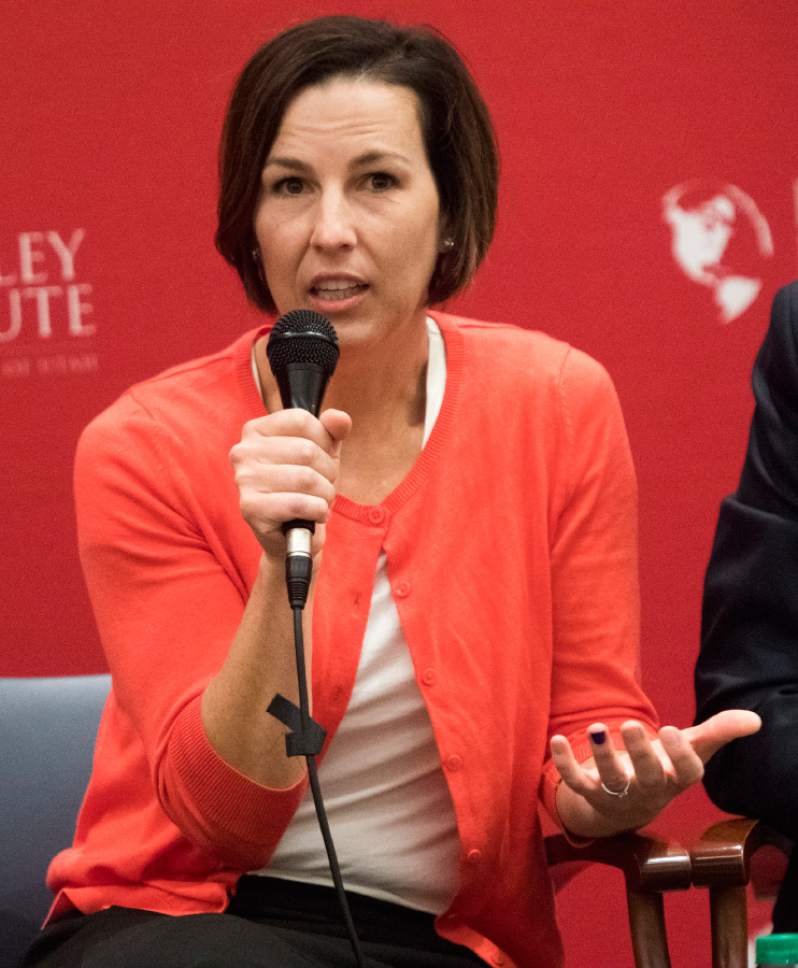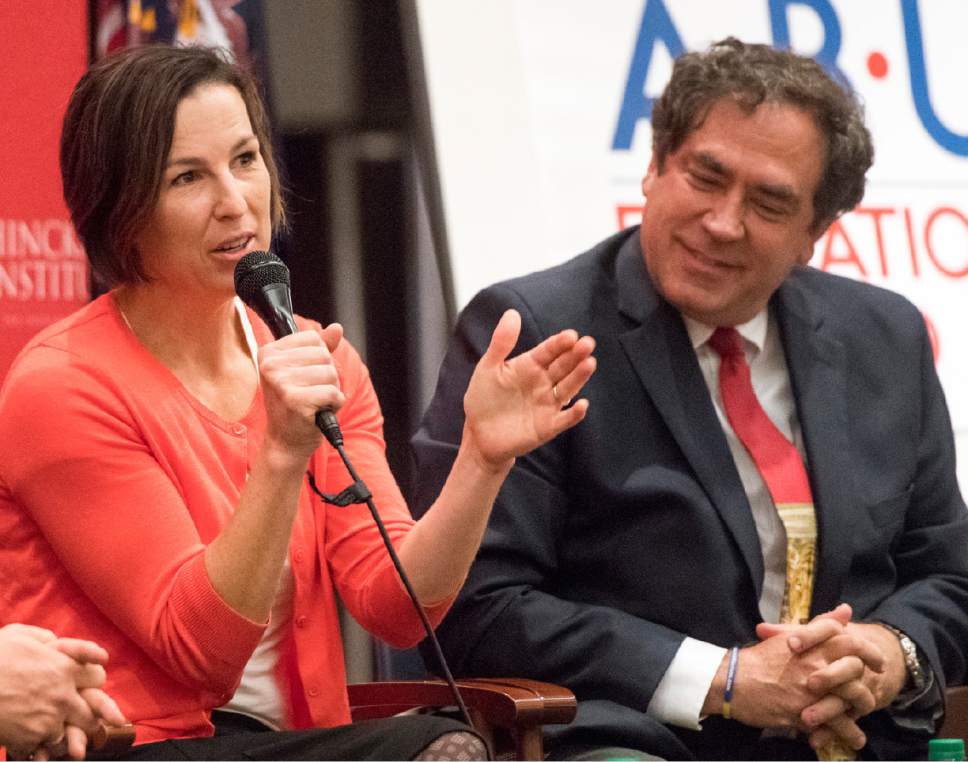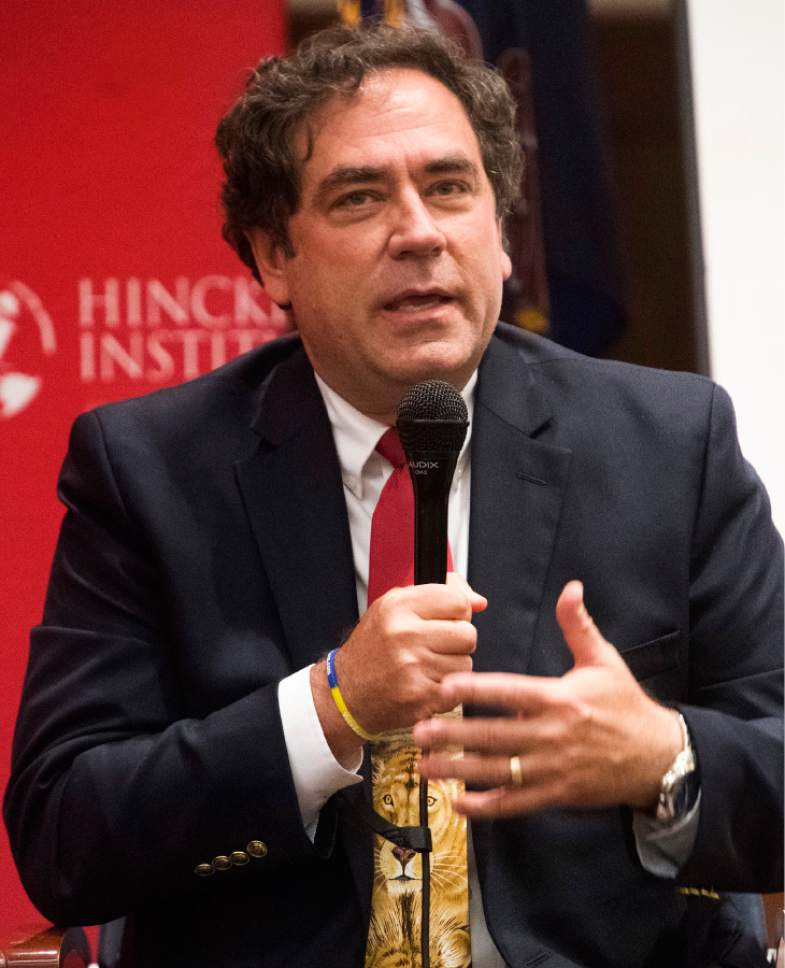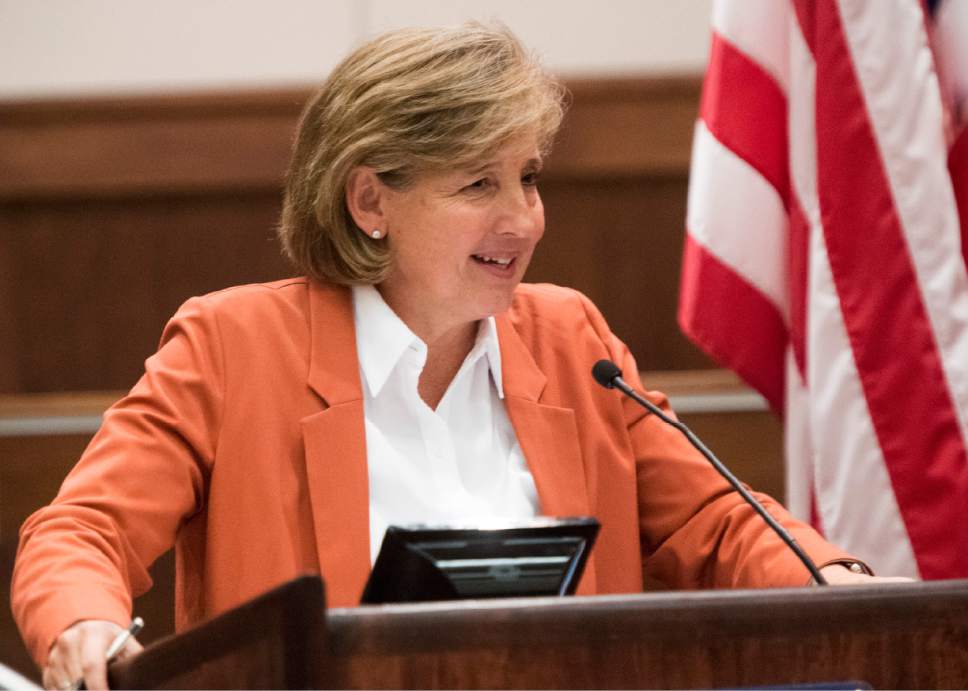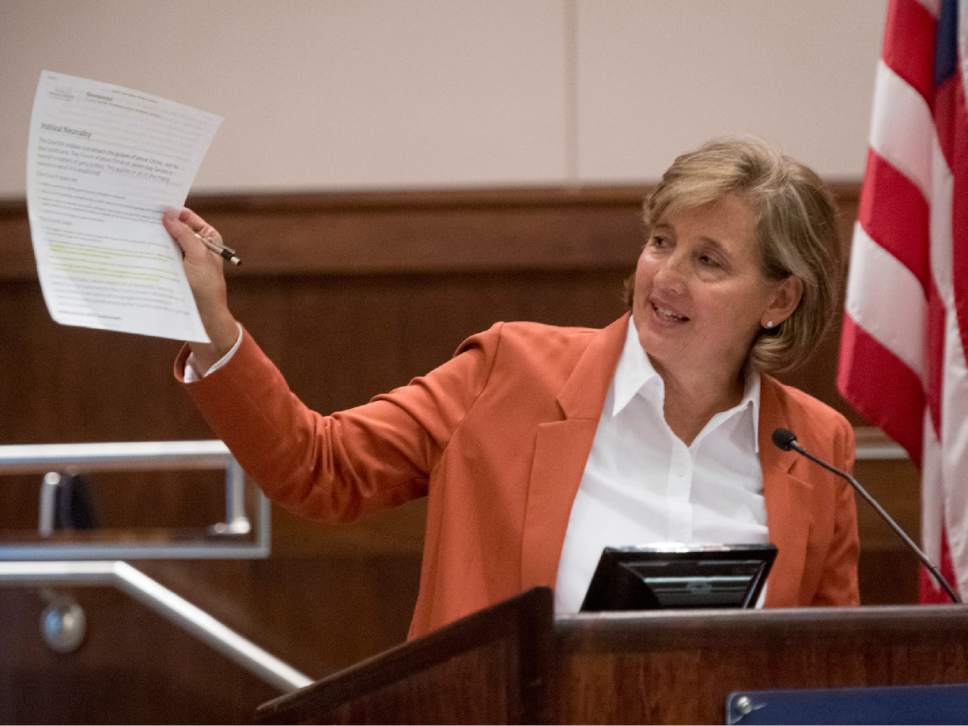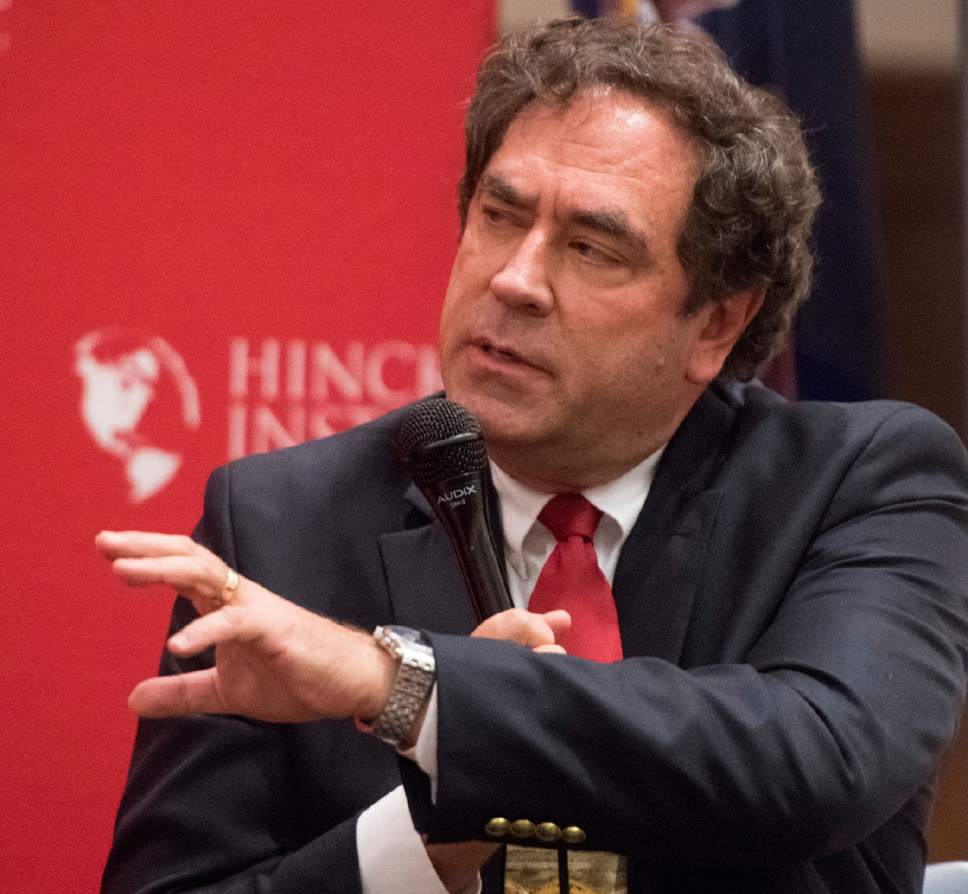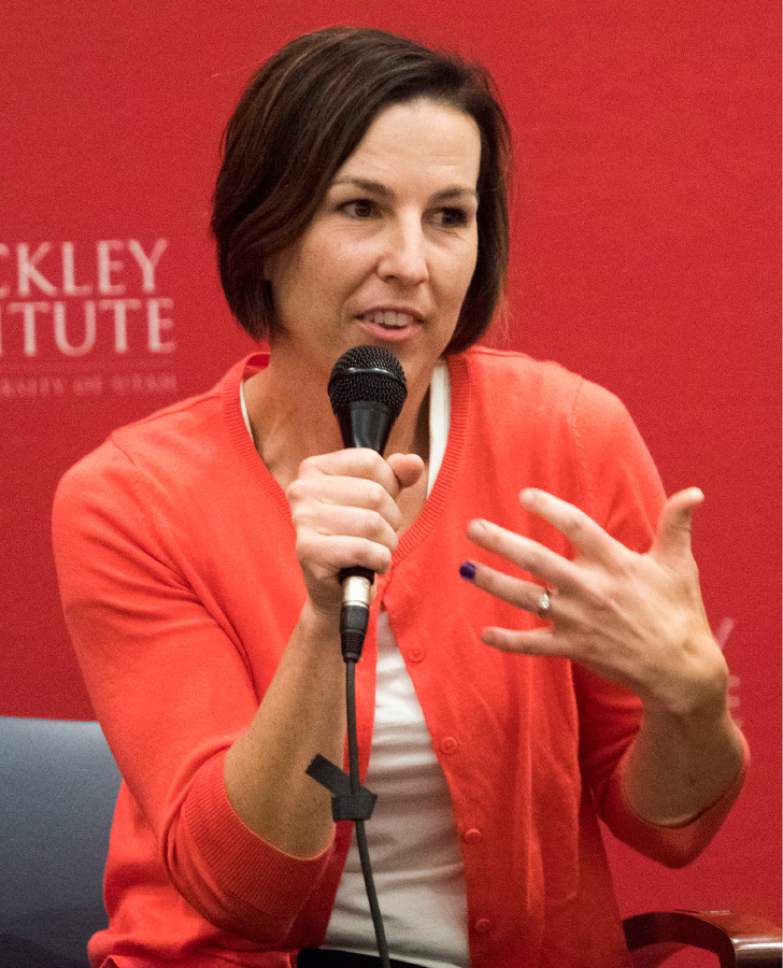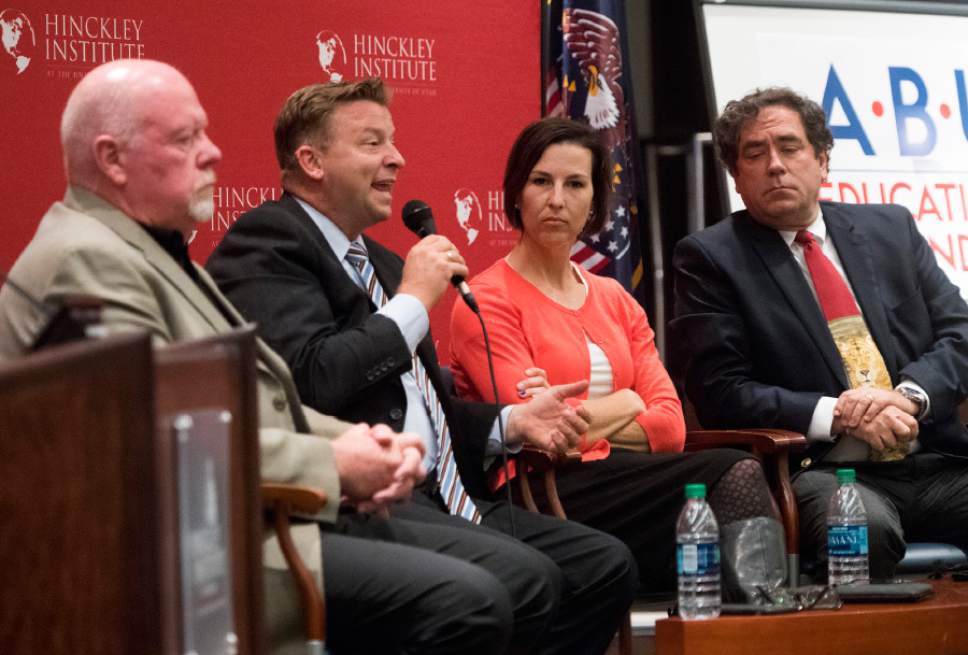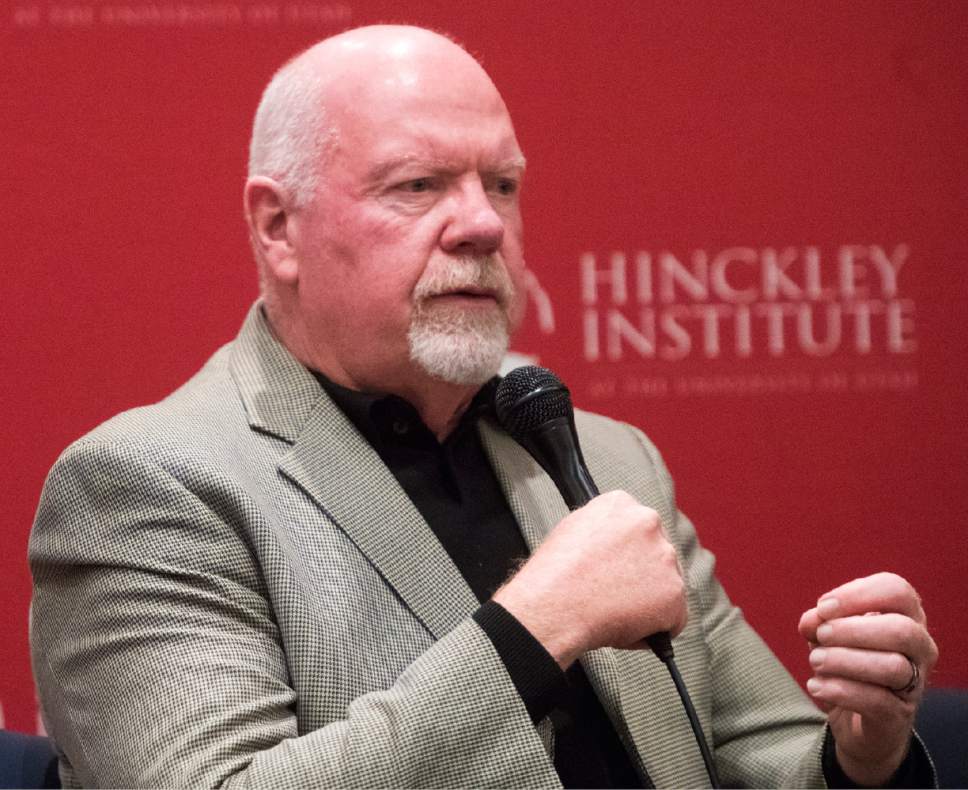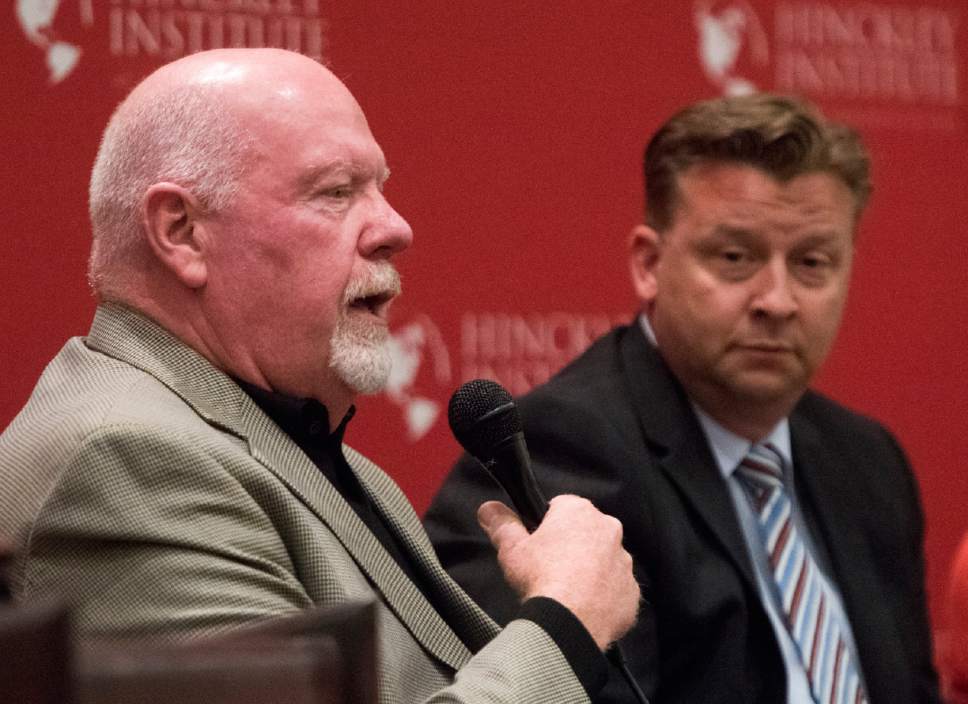This is an archived article that was published on sltrib.com in 2016, and information in the article may be outdated. It is provided only for personal research purposes and may not be reprinted.
Several Mormons who serve as state lawmakers said Monday that their church has a subtle influence on Utah politics but is selective about directly weighing in on issues.
Three Mormon legislators participating in a discussion about faith and politics late Monday afternoon at the University of Utah said they've never been contacted by church leaders about how to vote on legislation and have at times cast votes that countered the official stance of The Church of Jesus Christ of Latter-day Saints.
Monday's discussion, involving two Democrats and two Republicans, was part of a broad talk about their faith and how it aligns or contrasts with their politics and influences their decisions.
Rep. Brian King, D-Salt Lake City, said the church is clearly a significant presence in the state, where more than half of the residents and most lawmakers are members of the faith.
"To think that that's not going to exist is just naive," he said of the church influence. "It does exist, but it doesn't play itself out, in my experience, in a very direct way."
Church policy is to remain neutral on party politics, platforms and candidates and to not direct members how to vote.
In an official statement about its politics, the LDS Church says it reserves the right to express its views on issues that have significant community or moral consequences or that directly affect church interests. The church states that it communicates its views to elected officials who are members, as they would any other elected officials, but that politicians must make their own choices.
Mormon Sen. Todd Weiler, R-Woods Cross, said that in his five years as a lawmaker, he has been contacted by church lobbyists on legislation related to alcohol, adoption and gambling. "In my experience, the church is hands off in 99 percent of the bills that we handle," he said.
It makes sense for the church to weigh in on some Utah policy matters like other stakeholders, Weiler said, because the church employs many people and owns a large sum of land in the state.
Two lawmakers who didn't serve on Monday's panel publicly criticized the church earlier this year, saying the faith's opposition steamrolled their proposals on medical marijuana and hate-crimes protections for LGBT people.
Sen. Howard Stephenson, R-Draper, said Monday that he differed from his church on the medical marijuana bill and felt no inner conflict about supporting the measure.
When church lobbyists weigh in on legislation, Stephenson said, he considers their perspective, "but I don't vote carte blanche because of it."
Monday's panel discussion was organized by the ABU Education Fund, an affiliate of the left-leaning group Alliance for a Better Utah.


